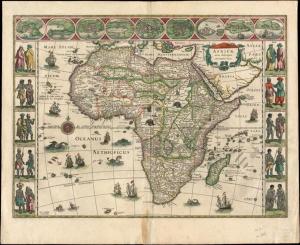| Author: | Alexandre Dumas Père | ISBN: | 9781465572288 |
| Publisher: | Library of Alexandria | Publication: | July 29, 2009 |
| Imprint: | Library of Alexandria | Language: | French |
| Author: | Alexandre Dumas Père |
| ISBN: | 9781465572288 |
| Publisher: | Library of Alexandria |
| Publication: | July 29, 2009 |
| Imprint: | Library of Alexandria |
| Language: | French |
There was once a young man by the name of Ziegler, who lived on Brauergasse. He was one of those people we see every day on the street, whose faces we can never really remember, because they all have the same face: a collective face. Ziegler was everything and did everything that such people always are and do. He was not stupid, but neither was he gifted; he loved money and pleasure, liked to dress well, and was as cowardly as most people: his life and activities were governed less by desires and strivings than by prohibitions, by the fear of punishment. Still, he had a number of good qualities and all in all he was a gratifyingly normal young man, whose own person was most interesting and important to him. Like every other man, he regarded himself as an individual, though in reality he was only a specimen, and like other men he regarded himself and his life as the centre of the world. He was far removed from all doubts, and when facts contradicted his opinions, he shut his eyes disapprovingly. As a modern man, he had unlimited respect for not only money, but also for a second power: science. He could not have said exactly what science was, he had in mind something on the order of statistics and perhaps a bit of bacteriology, and he knew how much money and honour the state accorded to science. He especially admired cancer research, for his father had died of cancer, and Ziegler firmly believed that science, which had developed so remarkably since then, would not let the same thing happen to him. Outwardly Ziegler distinguished himself by his tendency to dress somewhat beyond his means, always in the fashion of the year. For since he could not afford the fashions of the month or season, it goes without saying that he despised them as foolish affectation. He was a great believer in independence of character and often spoke harshly, among friends and in safe places, of his employers and of the government. I am probably dwelling too long on this portrait. But Ziegler was a charming young fellow, and he has been a great loss to us. For he met with a strange and premature end, which set all his plans and justified hopes at naught. One Sunday soon after his arrival in our town, he decided on a day’s recreation. He had not yet made any real friends and had not yet been able to make up his mind to join a club. Perhaps this was his undoing. It is not good for a man to be alone
There was once a young man by the name of Ziegler, who lived on Brauergasse. He was one of those people we see every day on the street, whose faces we can never really remember, because they all have the same face: a collective face. Ziegler was everything and did everything that such people always are and do. He was not stupid, but neither was he gifted; he loved money and pleasure, liked to dress well, and was as cowardly as most people: his life and activities were governed less by desires and strivings than by prohibitions, by the fear of punishment. Still, he had a number of good qualities and all in all he was a gratifyingly normal young man, whose own person was most interesting and important to him. Like every other man, he regarded himself as an individual, though in reality he was only a specimen, and like other men he regarded himself and his life as the centre of the world. He was far removed from all doubts, and when facts contradicted his opinions, he shut his eyes disapprovingly. As a modern man, he had unlimited respect for not only money, but also for a second power: science. He could not have said exactly what science was, he had in mind something on the order of statistics and perhaps a bit of bacteriology, and he knew how much money and honour the state accorded to science. He especially admired cancer research, for his father had died of cancer, and Ziegler firmly believed that science, which had developed so remarkably since then, would not let the same thing happen to him. Outwardly Ziegler distinguished himself by his tendency to dress somewhat beyond his means, always in the fashion of the year. For since he could not afford the fashions of the month or season, it goes without saying that he despised them as foolish affectation. He was a great believer in independence of character and often spoke harshly, among friends and in safe places, of his employers and of the government. I am probably dwelling too long on this portrait. But Ziegler was a charming young fellow, and he has been a great loss to us. For he met with a strange and premature end, which set all his plans and justified hopes at naught. One Sunday soon after his arrival in our town, he decided on a day’s recreation. He had not yet made any real friends and had not yet been able to make up his mind to join a club. Perhaps this was his undoing. It is not good for a man to be alone















